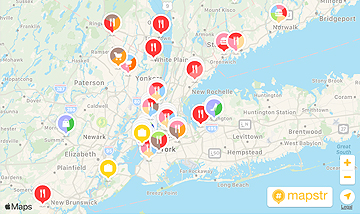Central African Republic/Democratic Republic of Congo/Somalia
Paris, October 2, 2013
(…)
SOMALIA/UN FORCE
The beginning of the country’s stabilization that we’re witnessing is the result of the work of the AMISOM force, made up of 18,000 mainly Ugandan and Burundian troops. I stress that those countries have taken heavy losses, because 2,000 of their troops have died.
The capital is currently protected but remains under threat of attacks. Al-Shabaab, which is known to be instrinsically linked to al-Qaeda, still has the ability to strike at the heart of the capital – which is nevertheless controlled by the state and the African force – and in the countryside.
The difficult process of normalization is making headway.
The African force should be increased to 25,000 troops. But who will pay? Hitherto, Europe has been the sole contributor, to the tune of €750 million. We’re being asked to make an extra effort and maintain it, without knowing for how long. The African Peace Facility, intended to finance these types of operation, is today almost exclusively devoted to Somalia. The idea is taking shape of an African force deployed in the Central African Republic (CAR), but European resources are lacking because some of our partners would like to concentrate the European effort on Somalia. We’re seeking to establish our own priorities, particularly by ensuring support for the African force in the CAR.
CENTRAL AFRICAN REPUBLIC/AFRICAN FORCE
The problems in the CAR date back to December. The country, which attracts little interest – France is the only country to worry about it and one of the few to have a presence on the ground – has also suffered from the simultaneous unrest in Mali. It was difficult for France, which was absorbed in the Mali crisis, to do more, despite the wish expressed by the African Union’s Peace and Security Council for it to get more involved.
The countries in the region – Chad, Cameroon, Gabon and Congo – meeting in the framework of the Economic Community of Central African States (ECCAS), are seeking to put a 3,500-strong force in place, with each providing 800 troops. Some 2,300 of them are already on the ground. Unlike ECOWAS, the countries that make up ECCAS have the capacity to fund an intervention force. Following difficult talks between ECCAS and the African Union, the regional force became continental on 1 August. The deployment of this now-African force is starting to make a difference, at least in Bangui. The country has been experiencing – as never before, according to local players – widespread looting. The inhabitants of Bangui’s main district have had no choice but to take refuge at the airport, under the protection of the 450 French soldiers who are there. The local authorities have taken back control of the situation, calling on Séléka to leave Bangui. Order in Bangui is now ensured by the police, the gendarmerie and the African Union force. The incipient stabilization of the situation is also reflected in the African force’s control of the main route from Bangui to the Cameroonian border, along which all trade passes. This recent control enables the state – whose coffers are empty – to collect taxes, where the Séléka warlords had got used to helping themselves.
The rest of the country is still left to its own devices – that is, left to the warlords. (…)
RELIGIOUS CONFLICT/TERRORISM
The religious aspect is also worrying, and particularly the presence in the CAR of Sudanese elements. Sudanese conflicts, including that of Darfur, seem to be creating ripples in the Central African Republic.
Likewise, certain terrorist elements present in Mali have today found refuge in southern Libya, from where it’s easy to reach Darfur and then the CAR. So we find all sorts of militias in the CAR who are engaging in banditry, but also dangerous terrorist groups: the Lord’s Resistance Army – the Ugandan militia guilty of appalling human rights violations which has brought death to Uganda, then the DRC and South Sudan – has settled in the CAR, exploiting the lack of a state. It’s likely that individuals from the Sahel and Mali are also in the Central African Republic, but also members of Boko Haram from Nigeria, which is very close. So the situation is very dangerous.
CAR/SOMALIA/FUNDING
That’s why France is being active at the United Nations, seeking to secure the rapid adoption by the Security Council of a resolution providing a mandate for the African force. But we’d like to go further, with a peacekeeping operation being put in place, because it’s hard to find in Brussels the major, long-term resources such a force needs. The African Peace Facility no longer has resources for 2014 – we must wait for 2015 and the 11th EDF [European Development Fund] – and is almost exclusively financing the African force in Somalia. So we’re holding discussions with the UK to emphasize to it that resolving the Somalia problem – admittedly important, as the events in Kenya and the fight against piracy have shown – mustn’t be done to the detriment of other African crises. A balance must be struck in the distribution of the European contribution between AMISOM and the International Support Mission in the Central African Republic (MISCA) [AFISM-CAR]. (…)
FRENCH/AFRICAN ROLES
On the CAR, the question that arises is as follows: is it France’s role to resolve all African crises?
Since the African Union was created, the Africans have believed they must handle their own affairs. In the case of Mali, the French authorities wondered about Africa’s ability to intervene within a short period of time. When the town of Konna fell there was a risk, if nothing was done, of letting Mali become a terrorist country. The region isn’t in a position to intervene, at least not immediately. A few months later the Africans thanked us for intervening, but they also expressed their regret about not having been able to act.
The idea of providing Africa with a rapid reaction capability in the event of a crisis isn’t new. It’s been one of the African Union’s projects since it was created. We know it will take time.
With the CAR, the issue of an intervention again arises. But France won’t make the same choice as for Mali. For the past few months, France has been working with ECCAS. At a time when the Africans have asked us to reinforce our presence on the ground – 600 troops – we have, by contrast, announced our intention to reduce it to 450 troops, to encourage the countries of the region to tackle the problem. I think we’ve helped raise awareness on their part that work on the ground is their responsibility.
It isn’t our role to send several thousand troops to the CAR, as was the case in Mali. Our role today, in the CAR, consists above all in mobilizing the international community, i.e. the ECCAS countries, the African Union, the European Union and the United Nations, in order firstly to get logistical support from the United Nations for the African force, and secondly, to set up a peacekeeping operation. The African Union has insufficient financial and logistical capabilities to fulfil this role in the long term. Already it would like to hand things over in Somalia, but the Security Council is against it, at least at this stage.
France has played a very active role in this. It took up the CAR issue, making it a priority. The President talked about it in his speech to the United Nations, and a ministerial meeting, co-chaired by the Minister, was organized on the subject during the ministerial week. After Syria and Iran, the CAR was the other important subject at the General Assembly.
ELYSEE SUMMIT/PEACE AND SECURITY IN AFRICA
The purpose of the Elysée summit for peace and security in Africa, which France has organized on 6 and 7 December 2013, is to answer this question: how can France help Africa equip itself with the capabilities to intervene tomorrow in a crisis situation such as that of the CAR? (…)
Africa is in better shape today than yesterday. Democracy is more widespread. There are fewer conflicts and they’re more domestic ones than ones between countries. In the face of the remaining problems, it is up to Africa to take action and it has the political will to do so. So how can we help Africans along this path?
Military cooperation is not the solution. It existed for 50 years in Mali, where soldiers were trained. But come the first attack, what happened? The same goes for the army of the Central African Republic.
AFRICA/DEVELOPMENT/CHINA/FOOD SECURITY
Africa’s development represents an opportunity for France and its companies. Annual growth is 6 to 7% for the whole of Africa.
Proof that Africa is succeeding is that everyone’s taking an interest in this, starting with the Chinese, who have economic and commercial designs. They’re not interested in security, but they don’t block decisions at the Security Council, except in the case of Sudan. They’ll easily vote for a peacekeeping operation in the CAR.
As regards food security, we’re making an important effort for the Sahel, which takes priority. Europe’s involvement is a success in that respect: the donors’ conference in Brussels collected €3.3 billion, including €600 million from the European Union. We succeeded in mobilizing the Europeans. We’d like to do the same for the CAR.
France’s policy is based on its ability to mobilize the international community rather than act alone. For Mali, we got Europe and the United Nations to take over.
SOMALIA
In Somalia, the security conditions currently aren’t allowing there to be a humanitarian intervention, even though aid programmes exist. Moreover, MSF [Médecins Sans Frontières] has pulled out of the country. We’re up against this difficulty: the people need help but can’t get it for security reasons. (…)
CENTRAL AFRICAN REPUBLIC
The CAR also needs a political process that requires cohesive institutions on the one hand and, on the other, the departure of the foreign elements in them. Bangui’s strongman is currently a Sudanese man from Darfur, a general only in name. The Central African authorities have asked him to leave. Mr Djotodia is on the way to putting the house in order. We have to remember that, despite the coup d’état, he’s a moderate within a militia, Séléka, which isn’t [moderate] and which, incidentally, no longer really exists. We must encourage this process./.














